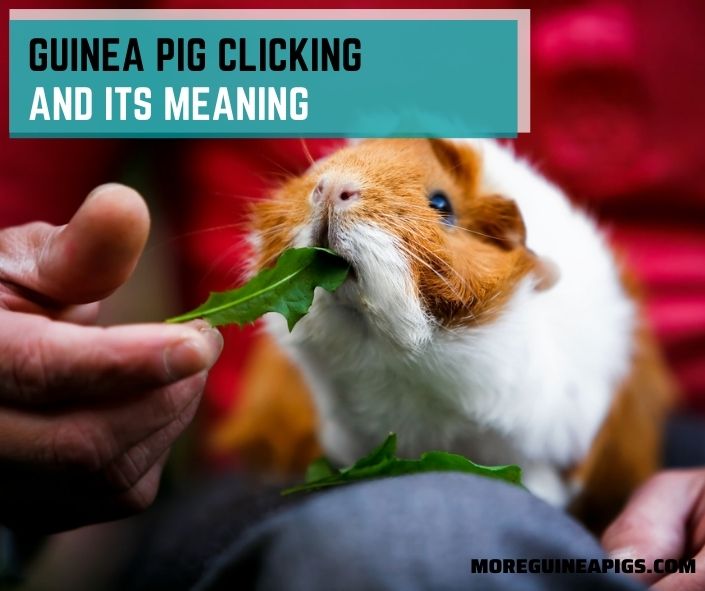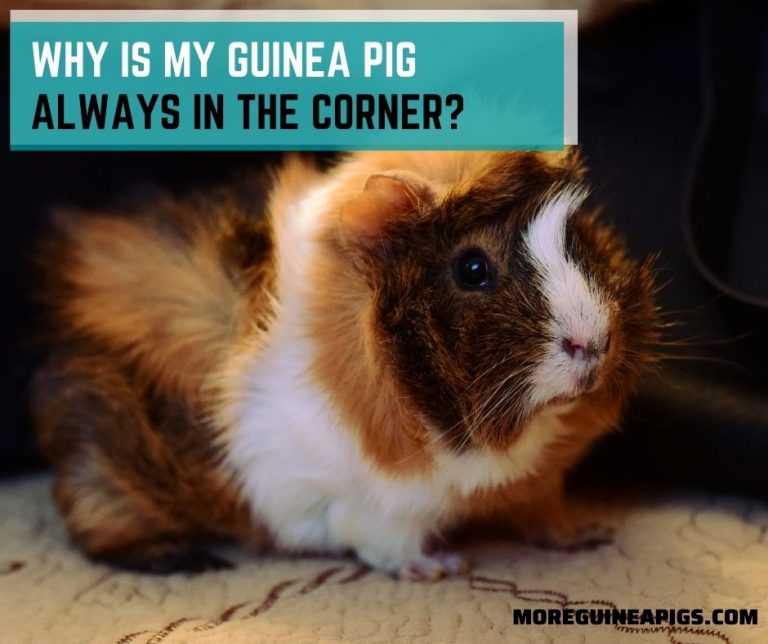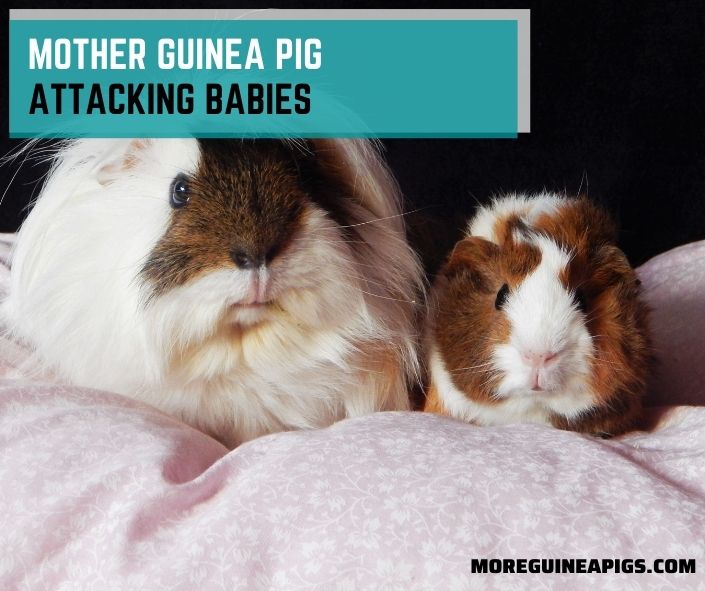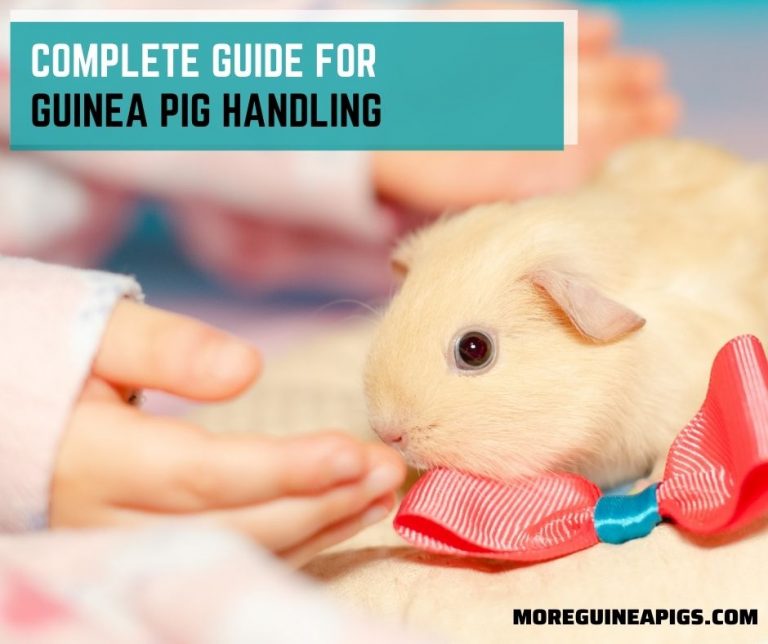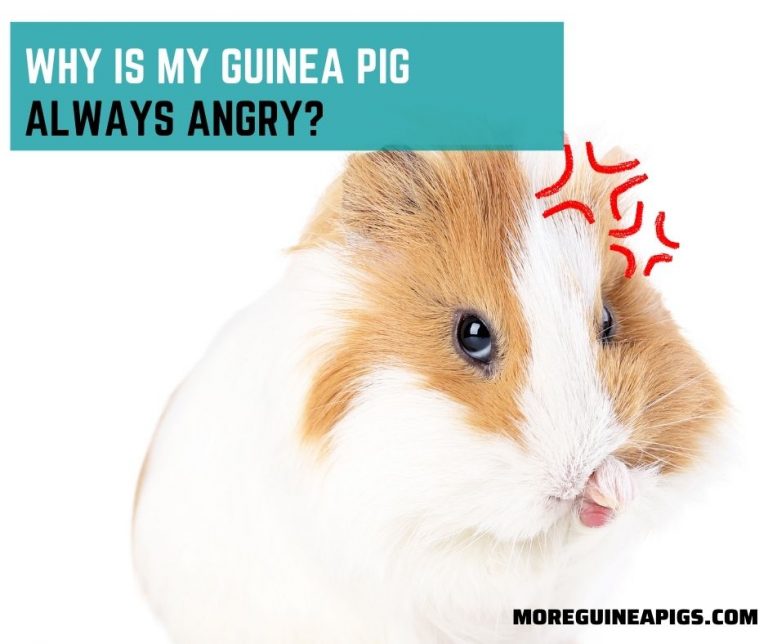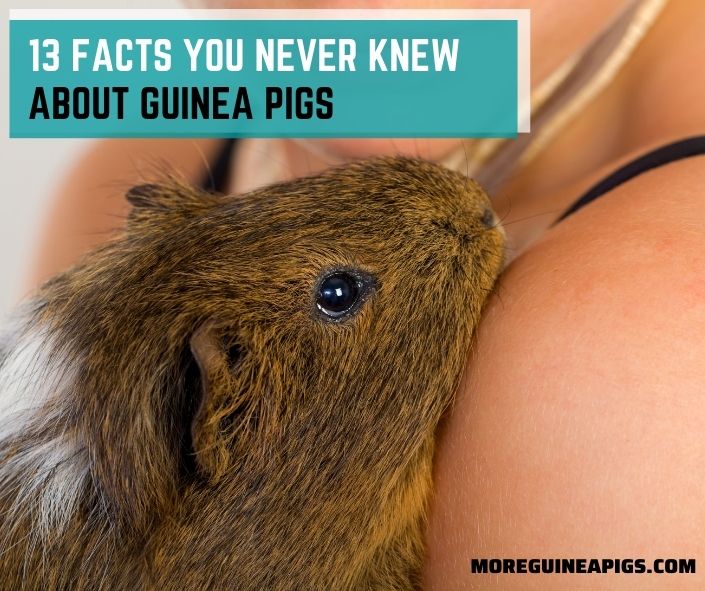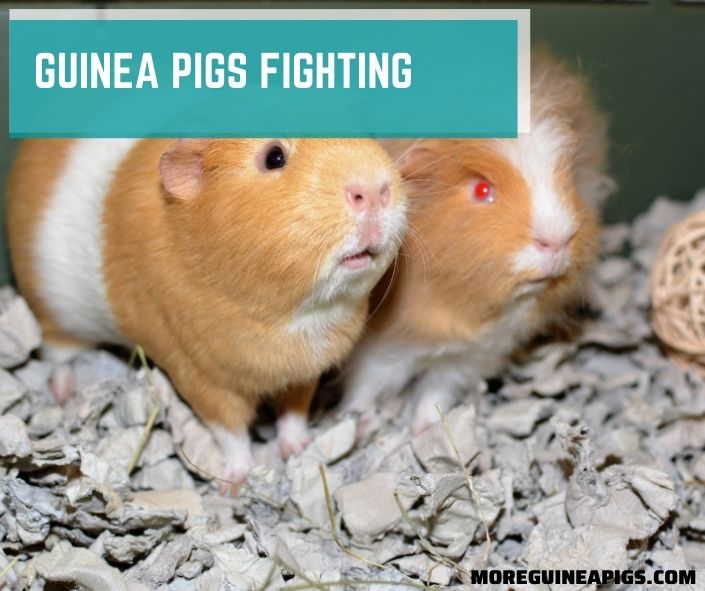Guinea Pig Clicking and Its Meaning
Nothing compels the heart to show much care and passion than listening and conversing with your companion pets.
Understanding your guinea pigs’ behavior and sound patterns is the primary prerequisite in taking care of your amigo, as it will help you differentiate the normal and abnormal sounds.
Through this article, you will appreciate the need to know the meaning of clicking sounds in your guinea pigs, as it will help you take precautions necessary for your guinea pigs.
Guinea Pig Clicking and Its Meaning
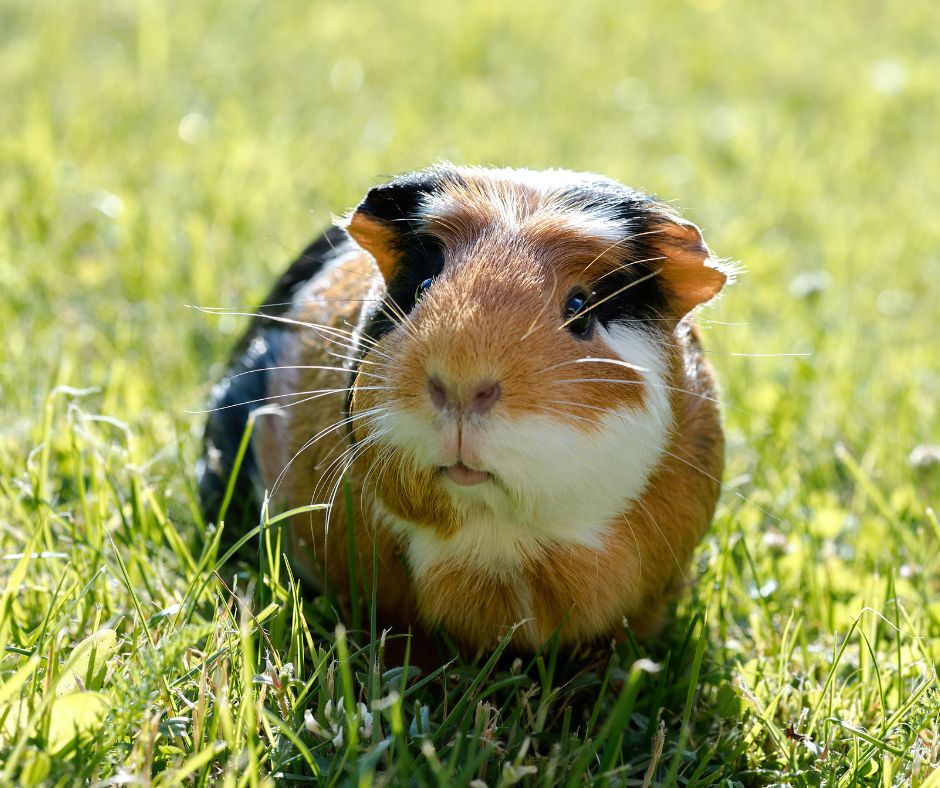
Suppose you’re attending to your pet, and suddenly it produces a high-pitched clicking sound and is pretty sharp too. Of course, the sound is unfamiliar to you. What would be your response?
Clicking is uncommon with guinea pigs, although if it appears once and disappears, fear not. But, if the sound persists, it could be a warning of underlying respiratory issues such as Pneumonia and primary sign of Upper Respiratory Infection (URI).
Moreover, it can result from tiny particles trapped into the nose, which causes blockage in the nose, and your guinea pig is trying to get rid of them.
Like a Slightly Blocked Nose
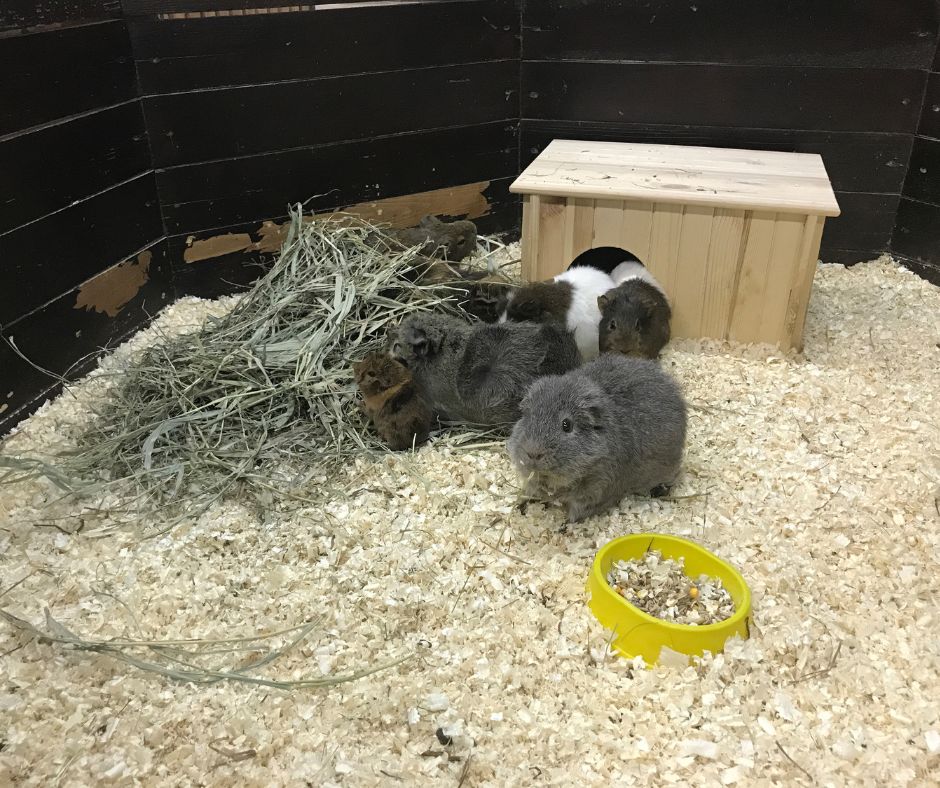
Do you clean and change the beddings frequently for pets? It’s not a good thing for your guinea pig to come into contact with dust or dirty beddings.
Numerous particles will penetrate through the nose, where the hair traps in the nose will block them.
As a result, your guinea pig will make a clicking sound to remove the particles from the nose. It also sneezes a lot, shakes its head, and rubs its nose on objects or surfaces while showing discomfort.
Whenever you hear the clicking sound several times, you should be worried and start making plans to visit your vet.
To deal with such a problem, the guinea pig owners should; provide clean and adequate water, food, perform regular grooming, and change the beddings regularly. Another important thing is to maintain hygiene in and outside the cage.
Start of a URI
Clicking sound from guinea pigs is a primary sign of Upper Respiratory Infection (URI). Other symptoms of URI include rapid and labored breathing, greenish or yellow mucus discharge from the nose, lack of appetite, lethargy, and weight loss.
URI is a severe and lethal infection in guinea pigs. It may lead to death when ignored or treated late. If you suspect your guinea pig is infected, take it to the vet for medication as soon as possible.
To avoid the risk of losing your pet, you should; provide warm beddings, avoid mixing your pet with other rodents, provide clean and adequate water, and food (rich in Vitamin C). Frequent medical checkup for your pet is also necessary.
OASIS #80254 Vita Drops-Pure C for Guinea Pig, 2-Ounce, Packaging may vary
Conclusion
Guinea pigs are social and calm animals, and they use sound as their primary means of communication and express their feelings. As a result, you will be in a position to tell if they are unwell or not.
Being the best pets to keep you company, understanding their behavioral pattern and different vocals they make daily is key to keeping them and maintaining their social welfare and health.
Additionally, abnormal sounds which you should be aware of are: rumbling, teeth clattering, chirping, and popping sounds. If they persist and are accompanied by ill health signs, it is advisable to see your cavy vet.
